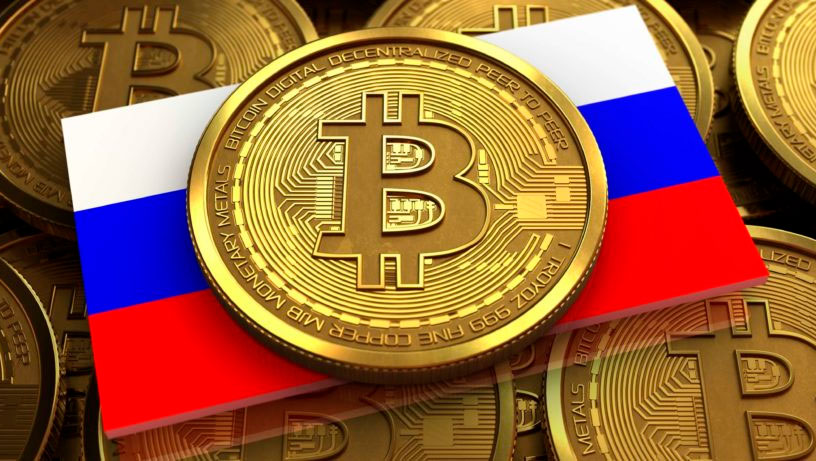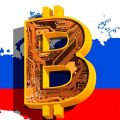
On July 22, State Duma deputies in the third reading adopted the bill “On digital financial assets, digitalcurrency and on amendments to certain legislative acts of the Russian Federation ”, or, more simply,“ On the CFA ”.
The law will enter into force on January 1, 2021 in the eventapproval by the Federation Council and signature by the president. The bill introduced the concepts of digital financial assets and digital currencies, recognizes cryptocurrencies as property and means of payment, and allows the purchase of tokens. However, it bans the use of cryptocurrencies in Russia to pay for goods and services, requires registration from crypto companies, and removes regulation of digital assets from the Central Bank.
Questions remained outside the scope of the document regardingturnover of cryptocurrencies by individuals, their taxation and mining. The crypto community believes that the adopted bill is the basis for future individual laws. Much more important to the industry is the Digital Currency Law, which is scheduled to be discussed in the fall.
How will the adoption of the bill affect the development of the crypto industry and the lives of ordinary holders of crypto assets?
The main provisions of the bill
Recall that the draft law "On CFA" has been considered in the Duma since May 2018. For two years, the text of the document went through several revisions, and its consideration was repeatedly postponed.
The adopted bill is aimed primarily atregulation of digital financial assets - tokens. There are only a few articles about digital currencies (decentralized cryptocurrencies), including definition and basic provisions. It is expected that a separate bill will be devoted to them, the text of which will be approved by the autumn session. According to the head of the State Duma Financial Market Committee Anatoly Aksakov, there is simply not enough time to work out the regulation of cryptocurrencies.
Digital Financial Asset (DFA)— “digital rights, including monetaryrequirements, the possibility of exercising rights under equity securities”, the issue, recording and circulation of which are possible only on the blockchain and which are regulated by Law No. 39-FZ “On the Securities Market”.
To put it simply, DFAs are tokens that assign to a user:
- Monetary obligations (including digital currencies);
- Equity securities;
- Exercise of rights under equity securities;
- Participation in non-public joint stock companies.
CFA are not a means of payment. But they can act as collateral, beobject in purchase and sale transactions or exchange for other DFAs. With their help, you can even issue crypto derivatives - “assets that certify the possibility of exercising rights under equity securities.” These assets can only be securities of non-public companies. It is not possible to issue ordinary shares on the blockchain or convert them into digital ones. But within the framework of the DFA, secured tokens - stablecoins - can also be issued. When advertising DFAs, it is necessary to emphasize that investments in them may lead to the loss of all funds.
Individual entrepreneurs and legal entities can issue CFA and digital currencies. At the same time, the administrators of the information system that issues the CFA must have a higher education, two years of experience in managing a financial or IT company or work in similar positions.
Crypto exchanges are permitted as DFA exchange operators.A large role in the regulation of digital financial services is given toCentral Bank. Crypto platforms that issue digital financial assets and conduct transactions with them must register in a special register of the Bank of Russia. After this, they will be able to obtain the status of a DFA exchange operator.
In general, the requirements for operators of the exchange DFAare similar to those that apply to participants in the traditional financial market. To obtain a license, you must have an authorized capital of at least 50 million rubles and your own compliance team in the state. An important clarification - CFA exchange operators will be able to trade only assets issued in the Russian jurisdiction. If a user wants to buy a foreign token, he can only do so on foreign platforms.
The purchase of DFAs may be limited by the Central Bank.The regulator has the right to develop criteria for digital assets, according to which only qualified investors can acquire them, or to introduce a limit on the amount that ordinary users can invest.
Digital currency— “a set of electronic data (digitalcode), which can be accepted as a means of payment that is not a monetary unit of the Russian Federation or other countries and for which there are no obligations of the issuer to the holders.
There is no term cryptocurrency in the text of the document, butat their core, digital currencies are ordinary cryptocurrencies like bitcoin or ether. They are recognized as a means of payment, they can be sold to each other, mined, treated as property, savings and investments. But at the same time, stablecoins do not belong to them - after all, there is an obligated person (issuer) for them.
Cryptocurrencies cannot be used to pay for goods, works and services on the territory of Russia,and also advertise the very possibility of paymentsdigital currency. The bans apply not only to individuals, but also to Russian companies, divisions of foreign organizations and tax residents of Russia. The law emphasizes that the ruble remains the only means of payment in the Russian Federation. It turns out that you can only pay with cryptocurrency to non-residents of Russia.
Cryptocurrencies are property.Therefore, owning and trading cryptocurrenciesmust be declared. In this case, the user will be able to claim legal protection for such operations. How cryptocurrencies should be declared is not yet specified in the law; the corresponding rules will be added to the Tax Code. But it is already stipulated that officials cannot own DFAs and cryptocurrencies issued by foreign platforms.
The bill does not spell out administrative and criminal liability for operations with cryptocurrencies.Previously, such amendments were criticizedcrypto community, as well as the Ministry of Justice, the Ministry of Telecom and Mass Communications, the Ministry of Economy. However, this does not guarantee that similar provisions will not appear later in a separate bill. Still, since there is a ban, there must be responsibility for violating it.
What is left outside the framework of the adopted bill?
The adopted bill is a breakthrough one for Russia. Most importantly, it recognizes cryptocurrencies and other digital assets as legitimate. This is a significant step towards the withdrawal of cryptocurrencies from the gray zone, digital assets are no longer ignored by legislation.
However, the full registration of cryptocurrencies in the Russianthe legal framework has not taken place, and legislators have something to work on. The adopted bill will become the basis for all other bills to regulate the crypto industry.
The following issues remain outside the scope of the bill:
- Definition and regulation of mining;
- Rules for the issue and circulation of cryptocurrencies in Russia, the exchange of digital assets for fiat funds (primarily for rubles);
- Taxation and declaration of cryptocurrencies;
- Responsibility for violation of the provisions of the bill.
In the text of the document there is a reference to the fact that allthese issues will be regulated by separate bills. It is likely that they will contain much more prohibitions and restrictions. We will not be surprised if criminal liability for illegal circulation of digital currencies appears in them.
“The current digital asset bill is notcontains nothing but basic provisions and definitions. I would call this the introduction to the main bill. It seems to me that the State Duma is acting within the framework of its bureaucratic logic, according to which the president has given it an order to adopt a law on CFA, and it has carried it out as best it can. ", noted Maria Stankevich, director of business development at the EXMO cryptocurrency exchange.
The adopted bill is a compromise between fullthe prohibition of cryptocurrencies and their complete legalization. There is no criminal prosecution for their use, which was assumed by the previous version of the document. The text also lost provisions allowing the receipt and transfer of digital assets only as inheritance, in bankruptcy or in enforcement proceedings. The worst fears were not confirmed.
“To supporters of regulation, the bill showedthat lawmakers are working to determine the status of digital assets, while business has received evidence that MPs are ready to discuss initiatives and do not insist on tough decisions. At the same time, the law still left the situation with classic decentralized cryptocurrencies gray - no ban, no legalization. To regulate them, additional acts are expected to be adopted ", noted Viktor Argonov, analyst at broker EXANTE.
How the adoption of the law will affect the crypto industry in Russia
So far, there is no need to expect tangible changes in the Russian crypto market - the bill leaves many more questions.
Most of the misunderstanding is caused by the ban onpayment for goods and services with cryptocurrencies. So far, according to the text, it turns out that any individual or legal entity accepting payment or paying in cryptocurrencies is recognized as a violator. The document puts a huge mass of crypto users out of the law, offering no alternatives.
It is also unclear how it will be checkeddeclaration and how the tax will be collected. We have already written about how difficult it is to determine the tax base for cryptocurrency assets. To implement the requirements of the bill, additional regulation will be required, as well as monitoring of exchange transactions.
The need to declare cryptocurrencies looks likeas a continuation of the fight against money laundering and gray wage schemes, actively carried out by the Tax Service under the leadership of its former head Mikhail Mishustin. At the same time, the bill does not give users any motivation to declare their crypto assets and come out of the shadows.
In general, the requirements for operators of the exchange DFAare similar to the requirements for participants in the traditional financial market. It is assumed that the licensing of exchange operators of the CFA will lead to the clearing of the market from small companies that are not ready to work with the regulator. This should further highlight the benefits of regulated platforms for users, insuring them against many risks. However, it is not yet clear whether exchanges and banks, previously far from the CFA, will be interested in them. Many startups will simply refuse to enter the Russian market. Therefore, you should not expect a sharp increase in the number of DFA exchange operators.
“As for the status of crypto-exchangers and exchanges, entrepreneurs are unlikely to risk opening such a startup in Russia before specifying the conditions for the circulation of digital currencies”, noted Viktor Argonov.
Maria Stankevich believes that even in its current form, the adopted bill is a big step forward.
“After the past prohibitive editionsOn the international market, there is a huge fear of getting involved with Russia and companies that have a huge layer of users occupied by Russian users. Now everyone has exhaled ", said the expert.
Waiting for the law "On digital currency"
As stated above, the draft law “On digitalcurrencies "will be considered by the Duma in the fall session. It is in it that the conditions and rules for the circulation of cryptocurrencies among individuals and businesses will be detailed. Most likely, legislators will try not to delay its adoption, so that it will come into force simultaneously with the law "On digital assets" in January 2021.
It is difficult to say in advance what it will be, butAnatoly Aksakov promises that the State Duma will approach him creatively. It is also unpredictable what restrictions on the turnover of cryptocurrencies will eventually be entered by the Central Bank, which until then did not differ in its love for digital assets. Nothing prevents the regulator from setting a purchase limit, for example, at 50,000 rubles.
Maria Stankevich also believes that it isthe digital currencies bill will be key for the industry. She believes that the adopted bill is just a glossary for legislators, and unpleasant surprises may await us. According to her, crypto-exchanges, of course, would like to see in the new draft law "On digital currencies" the procedure for the circulation and exchange of cryptocurrencies in the country.
Viktor Argonov believes that the status of cryptocurrencies in Russia is still not defined.
“The law should be more transparently spelled out,in which directions Russia has already decided to give the green light to the crypto market, and in which other disputes are ongoing. The situation when there is a turnover of cryptocurrencies in the Russian Federation, and opening a business is dangerous due to the uncertainty of the legislation, can hardly be called normal. It should be noted that the governments of many countries are actively developing this area in order to help the economy in the difficult post-coronavirus stage, but, unfortunately, such steps have not yet been taken in Russia. "
How do you assess the adopted draft law “On digital assets”? Is this a long-awaited step forward or another treadmill? Share your opinion in the comments below!
</p>Rate this publication



